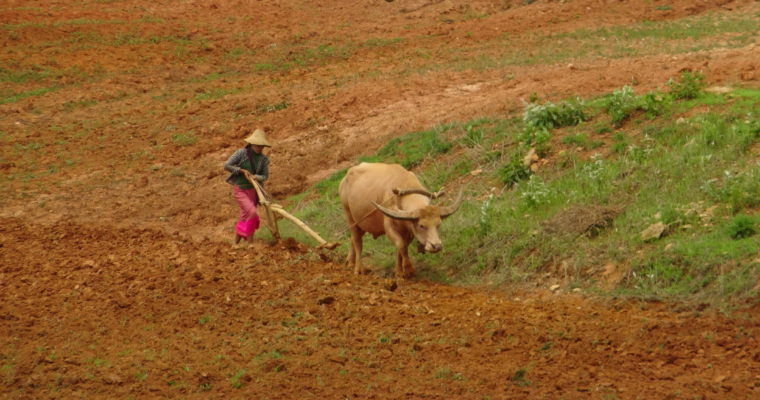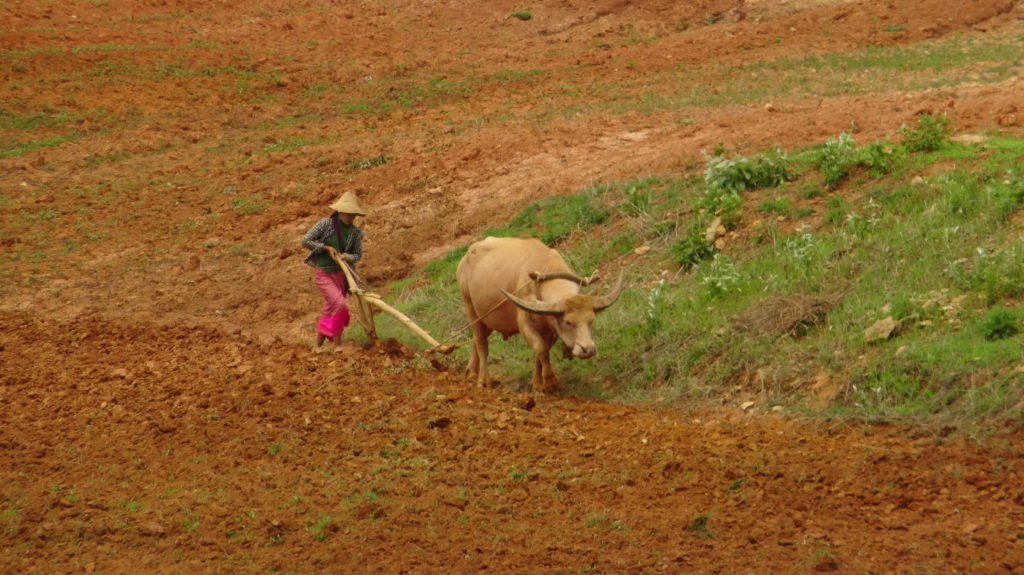This article is originally published by the International Institute for Environment and Development.
Ahead of World Environment Day on 5 June, Estrella Penunia highlights the challenges faced by small-scale women and men farmers in Asia from climate change, loss of biodiversity and land degradation.
Estrella ‘Esther’ Penunia (EP) is secretary general of the Asian Farmers’ Association for Sustainable Rural Development (AFA). Based in Quezon City in the Philippines, the AFA’s mission is ‘to empower small scale women and men farmers in Asia’. In that role, Esther represents those who farm non-timber products under the forest canopy – work that provides a livelihood for around 1.3 billion people.
In the week that the Community-based Non-timber Forest Product Enterprises (CBNE) forum takes place, culminating in World Environment Day on 5 June, Penunia shares in more detail the challenges her members face.
Q: What are the main challenges your members face from climate change, loss of biodiversity, and land degradation? Are these challenges getting worse?
EP: Two years ago, we planted eggplants on our farm. The weather was bad at the time the eggplants were flowering. It would be very hot in the morning, and then there would be a heavy downpour in the afternoon. That weather was not good for the eggplants, and so they had a disease, and the plants were not able to resist the pests that came.
This year, our farmers’ group will not have a bumper harvest of avocadoes like last year. It’s because we had two very strong typhoons when the avocado trees were flowering and the flowers were swept away by the strong winds.
Climate change is real. As are biodiversity loss and land degradation – both contributors to a changing climate. Unpredictable weather patterns increase pests and diseases and stunt the growth of plants and crops. Too much rain or too much sun makes plants die. As a result, yields go down and our incomes are reduced. Loss of biodiversity and soil erosion make things worse and we become more vulnerable, especially to typhoons, floods, and droughts.
Climate change and related disasters can spell loss of properties, livelihoods, health, displacement; it can mean hunger and poverty, and sickness; it can force us to be refugees. Right now in the Philippines, it should be the start of the rainy season, but it is seldom raining, meaning farmers cannot even prepare the land for planting. Loss of biodiversity also means poorer soil health and fewer sources of food and medicines that are needed to maintain health.
Q. Are there particular issues for women and young people?
EP: Women farmers are most vulnerable as they are primarily responsible for food and water and fuel, as well as the health of the family. Climate change, biodiversity loss, and land degradation can lead to less water and less food, increasing the pressures for women – they might have to walk many kilometres more to find water and firewood.
There are reports that domestic violence increases when women are unable to find food.
Young people are not attracted to farming because they see that it does not bring in money and there are no incentives to farm, plus the rural areas have poor services and facilities. They go to the cities to make a living and most of them become exploited workers. This migration is resulting in the feminisation of agriculture, leaving women with multiple burdens: caring for the family, caring for the farm, as well as caring for the community’s welfare.
Q: Are there AFA initiatives addressing these issues or others with these groups?
EP: At the regional level, AFA conducts consultations, awareness-raising, and capacity building on these issues, including sessions where experiences are shared and lessons collated.
AFA also makes efforts to get support from development partners for regionally coordinated, but nationally implemented, projects. We have awareness and capacity-building programmes on agroecology and climate-resilient agriculture, community seed banking, and establishing cooperatives to increase the market power of farmers. The Forest and Farm Facility is supporting us in building the capacities of leaders of national young farmers’ committees to be advocates for sustainable, resilient, gender-sensitive agri-forest-based livelihoods.
Q: What advantages does an organisation such as AFA, or its member farmer organisations, have in helping local forest and farm producers to cope with those challenges?
EP: Forest and farm producers benefit from organisations such as AFA as they can receive technical assistance and economic services in easier, more farmer-friendly ways, without the usual requirements demanded by other institutions, such as governments and formal banks.
Being in an organisation allows one to interact more closely with other farmers and have more opportunities for sharing and learning from each other. It increases capacities for leadership and cooperation, allowing for personal growth and for members to be in solidarity with one another. We say we are ‘stronger together’, and as we combine our resources, our wisdom and our experience, we are able to solve problems better than solving them alone.
In terms of advocating for policy change or reforms with our government, ‘bigger is better’: the more we are and the more united our voices are, the greater the chance is that decision makers will listen to us and consider our recommendations.
Q: In this ‘super year’ of climate and biodiversity COPs, what are your main messages to decision-makers about involving forest and farm producers in finding solutions to these challenges?
EP: Forest and farm producers are not only victims; they are not only beneficiaries; they are also solution providers. We have the knowledge and the motivation to address the problems of climate change, biodiversity loss, and land degradation because our livelihoods, and our lives, are very much affected by these issues.
Involving us in the design, planning, implementation, and monitoring of policies and programmes will increase our ownership, and heighten our responsibility and accountability, unleashing our potential to contribute to addressing these issues more effectively.
AFA receives funding from the Forest and Farm Facility – for which IIED is working with forest and farm organisations to share best practices on climate resilience.
Source: https://www.iied.org/qa-unleashing-potential-forest-farmers-address-climate-change-biodiversity-loss





Comments are closed